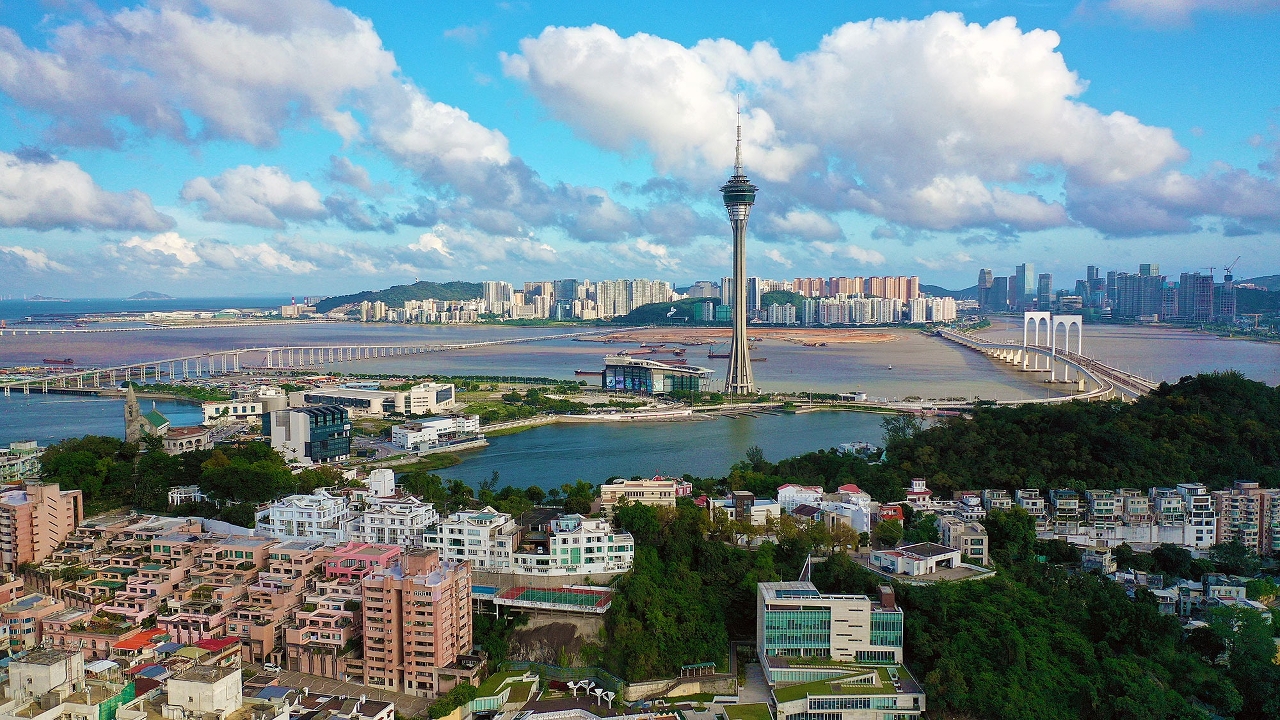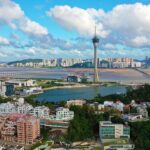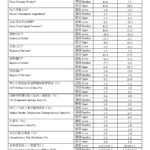 UM releases the macroeconomic forecast for Macao 2025
UM releases the macroeconomic forecast for Macao 2025
The Centre for Macau Studies and the Department of Economics of the University of Macau (UM) have released the macroeconomic forecast for Macao 2025. The global economic outlook faces downward risks due to the significant slowdown in China’s economic growth and the uncertainties brought about by various countries’ economic policies. The research team predicts that Macao’s baseline GDP growth in 2025 will be 7.7%, while the baseline forecasts for other major economic variables are: exports of services will grow by 7.6%; private consumption expenditure will increase by 3.1%; the inflation rate will be 1.1%; the overall unemployment rate will be 1.8%; the unemployment rate of Macao residents will be 2.3%; and the Macao SAR Government’s current revenue will be MOP 111.8 billion.
Macao’s economy gradually returned to normal after the COVID-19 pandemic. The number of visitor arrivals began to recover in 2023. In the first quarter of 2024, the pace of recovery was good, with the total number of visitor arrivals reaching 8.88 million, a huge increase of 79.4% year-on-year. However, in the second quarter of 2024, the pace of growth began to slow down. The total number of visitor arrivals was 7.84 million, an increase of only 17.1% year-on-year. In the third quarter of 2024, the growth of visitor arrivals continued to slow. The overall number of visitor arrivals was 9.20 million, an increase of only 11.1% year-on-year. Among them, the number of visitor arrivals from mainland China reached 6.68 million, up 14.7% year-on-year; the number of visitor arrivals from Hong Kong was 1.79 million, down 6.0% year-on-year; while the number of visitor arrivals from other regions reached 0.73 million, up 31.7% year-on-year. Due to the slowdown in the growth of visitor arrivals, real exports of services in the third quarter of 2024 were MOP 72.0 billion, up 1.3% year-on-year, of which real gaming expenditure of non-residents was MOP 42.9 billion, up 11.2% year-on-year; while real non-gaming expenditure of non-residents was MOP 20.1 billion, down 14.5% year-on-year.
In terms of domestic demand, both private consumption and investment grew steadily. In the third quarter of 2024, real private consumption expenditure amounted to MOP 28.9 billion, an increase of 1.9% year-on-year. Among them, real consumption expenditure on food, beverages and tobacco and abroad showed promising growth, rising by 5.2% and 5.9% respectively; while real consumption expenditure on consumer goods was weaker, declining by 2.7% year-on-year. Gross fixed capital formation was amounted to MOP 16.0 billion, an increase of 16.0% year-on-year.
Prices remained stable, with the consumer price inflation rate from January to November 2024 at just 0.8%. The largest component, food and non-alcoholic beverages, had an inflation rate of 1.2% (the inflation rate for eating out and takeaway was 2.4%). The second largest component, housing and fuel, had an inflation rate of 0.5%.
The labour market remained tight, with the overall unemployment rate at 1.7% in both the second and third quarters of 2024, and the unemployment rate of Macao residents at 2.3%. The overall median monthly employment earnings in the third quarter of 2024 was MOP 18,000, exceeding the MOP 17,000 recorded in the same period of 2019, while the median monthly employment earnings of Macao residents was MOP 20,500, also higher than the MOP 20,000 recorded in the same period of 2019.
According to the International Monetary Fund (IMF)’s forecast in October 2024, the global economy is expected to grow by 3.2% in both 2024 and 2025. Overall, the world is expected to maintain stable economic growth; however, uncertainties brought about by various countries’ economic policies has led to downside risks to the global economic outlook. The US economy is expected to grow by 2.8% in 2024 and 2.2% in 2025, while the euro area economy is expected to grow by 0.8% in 2024 and 1.2% in 2025. Mainland China’s economic growth has slowed significantly due to the negative impact of structural change and continued weak expectations, with a growth rate of 4.6% in the third quarter of 2024, and future trade frictions with the US may add more uncertainty to the economy. The Chinese central government tried to boost private consumption and investment through more proactive fiscal and financial policies. These developments in external and internal demands also slowed the economic growth of Hong Kong, another major services export market of Macao, with a growth rate of only 1.8% in the third quarter of 2024.
As various unstable factors continue to affect Macao’s economic growth, the baseline forecasts for major economic variables for 2025 are as follows:
- Macao’s GDP will grow by 7.7%.
- Exports of services will grow by 7.6%.
- Private consumption expenditure will grow by 3.1%.
- Gross fixed capital formation will grow by 8.0%.
- Consumer prices (as measured by the GDP deflator) will rise by 1.5%; and the CPI (composite) inflation rate will be 1.1%.
- Median monthly employment earnings will increase by 0.7%.
- The unemployment rate will be 1.8%, and the unemployment rate of Macao residents will be 2.3%.
- The Macao SAR Government’s current revenue will be MOP 111.8 billion.
About the Macroeconometric Structural Model of Macao
The Macroeconometric Structural Model of Macao is a quarterly simultaneous-equations econometric model which covers seven blocks of Macao’s economy: consumption, investment, external trade, prices, government, labour market, and monetary sector. It includes 87 equations and 301 variables. Time series data start from the first quarter of 1998 and is updated once new data are available. Its results provide the community with a timely understanding of the state of Macao’s economy and support prudent decision-making. The model was founded by the late Prof Sir James Mirrlees, Nobel laureate in economic sciences and honorary doctor of social sciences of the University of Macau (UM), and faculty members in the Department of Economics of UM. The research team includes Chan Chi Shing, Ho Wai Hong, Kwan Fung, and Gary Wong Ka Kei. The project is now managed by the Centre for Macau Studies of UM.



